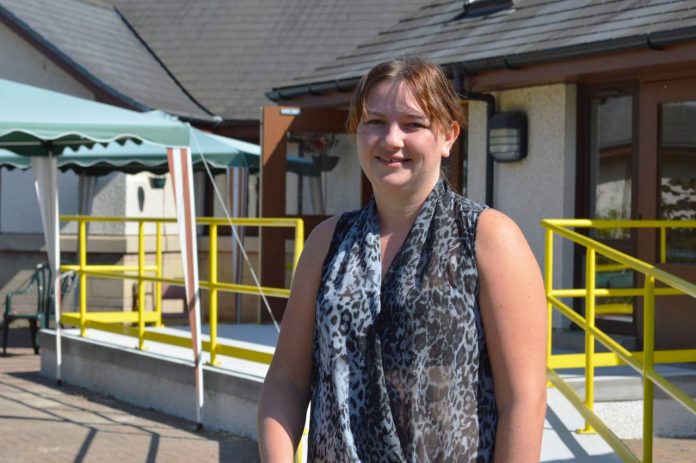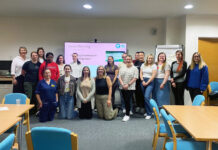We all know that life can be hectic at times, but Staff Nurse Tracey Gow is proof that even the busiest of people can still find time to learn something new!
Tracey has worked full time in Bo’ness Hospital for six years, and in between shifts as a Staff Nurse and driving her son Declan to football, she has still managed to find the time to complete a Masters degree in Dementia Studies from the University of Stirling.
“Bo’ness was the first place I worked as a qualified nurse – I came here as a student and I liked it here,” Tracey explains. “I got so much support from other Staff Nurses – which is important when you’re newly qualified. Their support helped me go on and do further training. I completed a stand-alone 16-week module in Palliative/End of Life Care in Dementia and really enjoyed it, so three years ago I enlisted for the long-distance Masters degree so that I could study around work.”
The course covered all aspects of dementia care, including activities, quality of life, diagnosis, family support, paid/unpaid carers, treatment options and end of life care. Tracey’s final report was based on end of life care for people with dementia, and following her graduation in June 2014, Tracey is now eligible to apply to study for PHD – although she’s unsure!
“Seven years long distance study is a lot! It was hard trying to read through mountains of medical journals while working full time and doing the everyday things. Everyone keeps saying that now I have free time I’ll be bored but there’s plenty in the ward to keep me busy – I’m the Dementia Facilitator for the unit so I also provide dementia training to nursing auxillary staff. I’ve found I enjoy the teaching side of things.
“I really enjoy this kind of work and the staff work well as a team – the Mental Health Welfare Commission recently inspected the ward and gave absolutely no recommendations so we were really pleased. When you’re dealing with someone with dementia you’re not just dealing with a patient, they come as a package with relatives who need support too. They are handing over the care of the most precious person in their life to you when they are at their most vulnerable, and it’s a great honour to provide them with the respect and dignity they deserve.”







